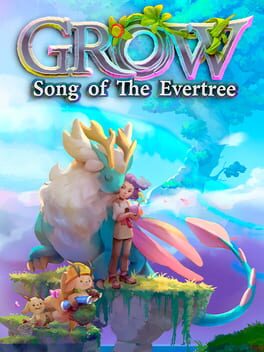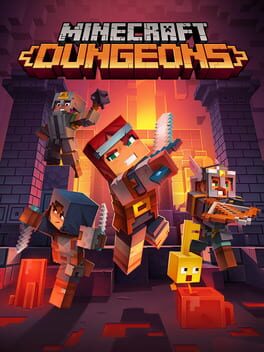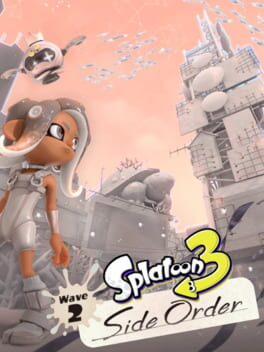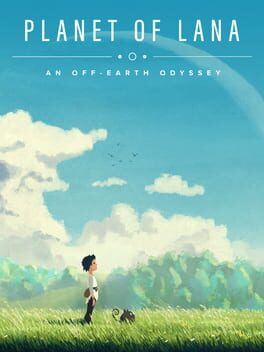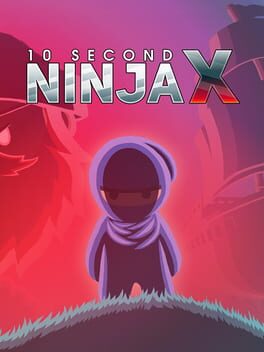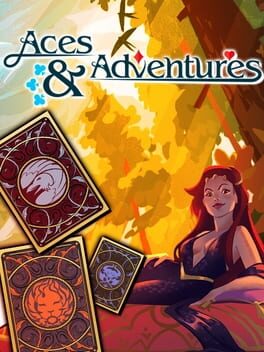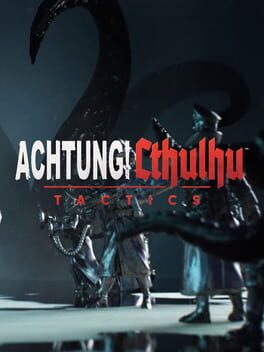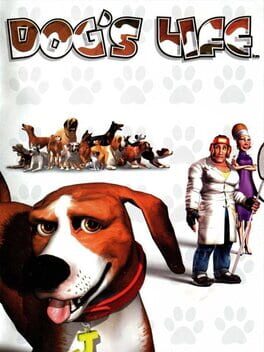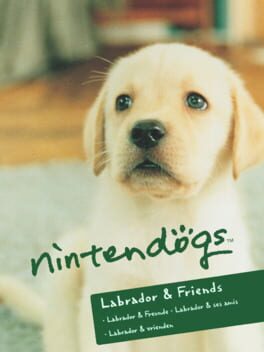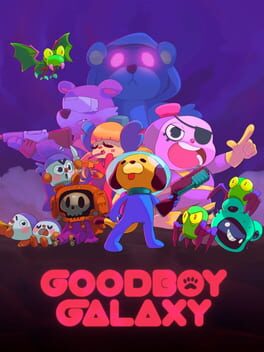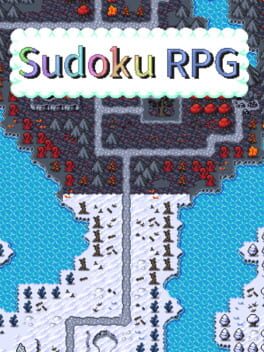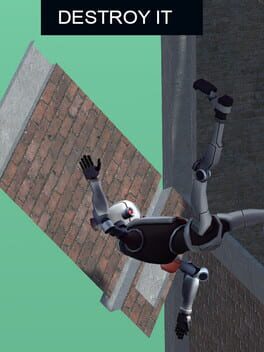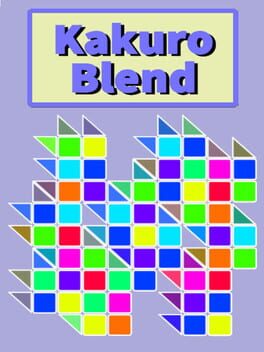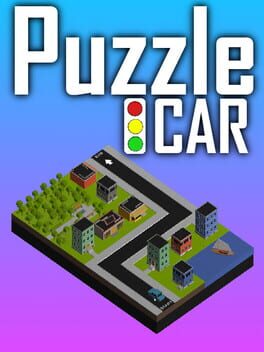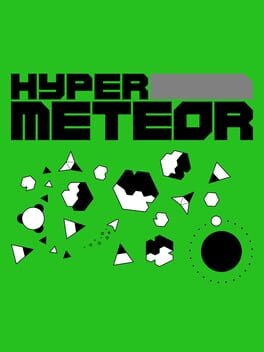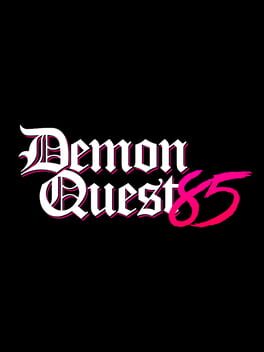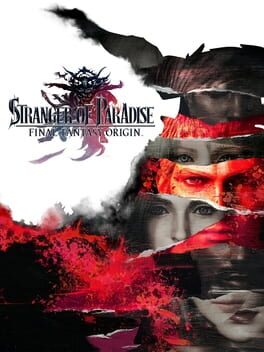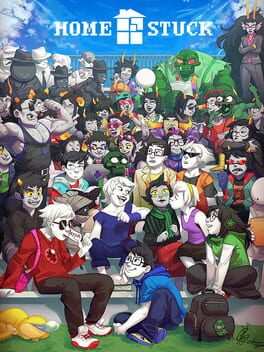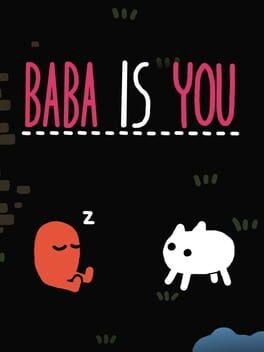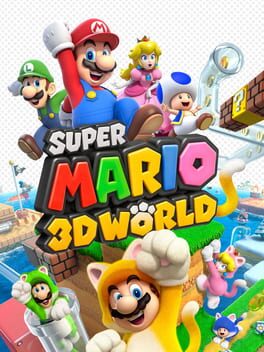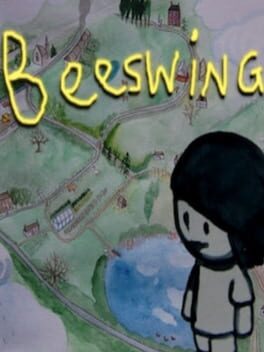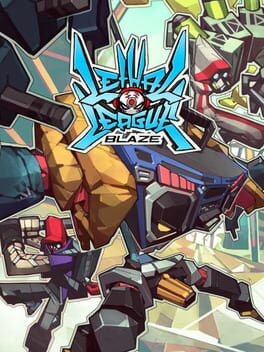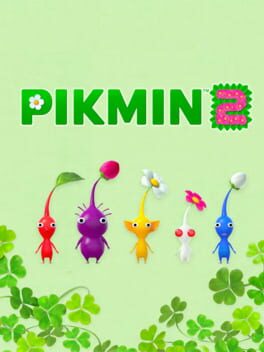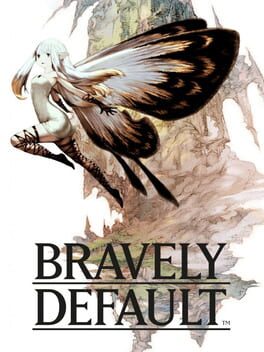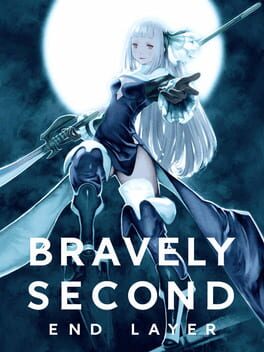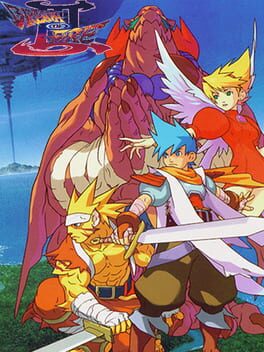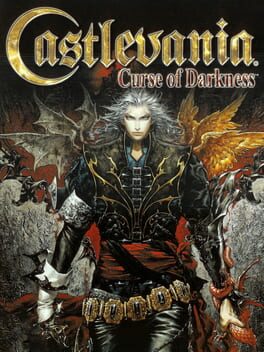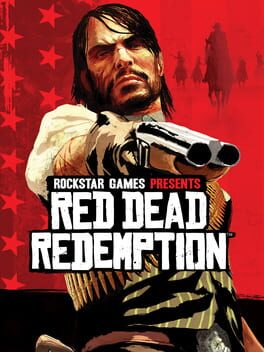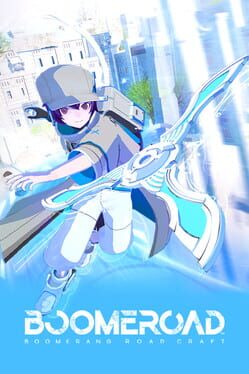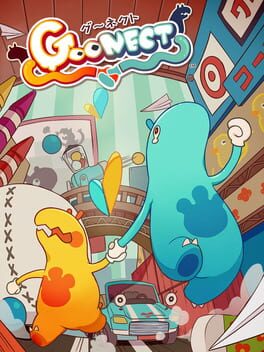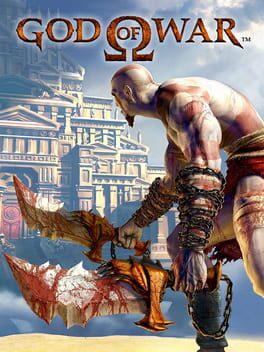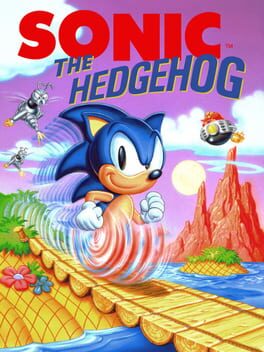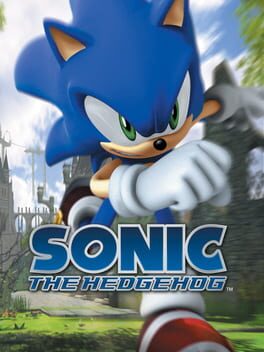Latch
308 reviews liked by Latch
Wordle
2021
Wordle
2021
This game is currently in the Humble Choice for January 2023, this is part of my coverage of the bundle. If you are interested in the game and it's before February 7th, 2023, consider picking up the game as part of the current monthly bundle.
So bored.
The farming genre, for a lack of a better term, has grown like crazy. There are so many different takes on the idea. Grow: Song of The Evertree, has the player replanting the world to beat back an encroaching darkness, and singing to plants. It sounds good and it’s certainly popular.
I just can’t figure out why. So much of this game just feels like chores and not the type that is fun or interesting. Instead of building towards something, you’re just told to grow plants, farm them for items, and eventually build a town, but everything is so monotonous. Admittedly, I’m early in the game, but I went back after an hour to play more and I gave up a second time because I was so bored.
Pick this up if... honestly, if there’s nothing else. Maybe this is the type of game that doesn’t work for the first hour review, but as always I ask if the first 90 minutes of the game are so weak, why not cut those out, or improve them? The thing is while playing the game I started thinking up a list. Slime Rancher, Stardew Valley, My Time at Portia, Graveyard Keeper, Forager. Even the soon-to-be greedy Dreamlight Valley all of these games have great opening hours that get players excited for the rest of the experience. Grow, just feels like it’s chores upon more chores. I’d rather play any of those six games I mentioned.
If you enjoyed this review or want to know what I think of other games in the bundle, check out the full review on or subscribe to my Youtube channel: https://youtu.be/bxcCaC4dN1E
So bored.
The farming genre, for a lack of a better term, has grown like crazy. There are so many different takes on the idea. Grow: Song of The Evertree, has the player replanting the world to beat back an encroaching darkness, and singing to plants. It sounds good and it’s certainly popular.
I just can’t figure out why. So much of this game just feels like chores and not the type that is fun or interesting. Instead of building towards something, you’re just told to grow plants, farm them for items, and eventually build a town, but everything is so monotonous. Admittedly, I’m early in the game, but I went back after an hour to play more and I gave up a second time because I was so bored.
Pick this up if... honestly, if there’s nothing else. Maybe this is the type of game that doesn’t work for the first hour review, but as always I ask if the first 90 minutes of the game are so weak, why not cut those out, or improve them? The thing is while playing the game I started thinking up a list. Slime Rancher, Stardew Valley, My Time at Portia, Graveyard Keeper, Forager. Even the soon-to-be greedy Dreamlight Valley all of these games have great opening hours that get players excited for the rest of the experience. Grow, just feels like it’s chores upon more chores. I’d rather play any of those six games I mentioned.
If you enjoyed this review or want to know what I think of other games in the bundle, check out the full review on or subscribe to my Youtube channel: https://youtu.be/bxcCaC4dN1E
There's a common piece of advice you'll hear in indie game making circles: when making your game, pick one thing (e.g. a core mechanic) and make sure to do that one thing exceptionally well. The point is not that every good game has to have a singular strong point, but that unfocused development, if it even manages to deliver a product, often leads to a game with no strong points at all. It's excellent advice -- and Grow: Song of the Evertree is a great cautionary tale in favor of that advice.
Grow is... a lot of things. Perhaps most prominently, it's a city builder, but it's unclear whether it wants to be one in the management sense or in the Animal Crossing sandbox sense. In the former case, progression is stilted, held back by strict item requirements as well as luck. There's also no real economy in the districts you build: there's no flow of resources, nor an incentive to make the town remotely like a real town. The only control you have over this theoretical simulation is matching residents to jobs they want (often brainwashing them into liking a job you can give them), and the only yield from that is far more money than you'll ever need because, again, there's no economy: I finished the game with dozens of thousands in the bank.
But consider the other possibility, that it's aiming for the sandbox style of something like Animal Crossing, where the game world is your canvas and you build for the sake of self expression. In that case, the railroading along with the arbitrary constraints on number of buildings and decorations per district put a cap on your creativity, as do the limited handout of customization items that, for the most part, don't stand out anyway. The villagers that inhabit the town are similarly soulless, generated randomly from three base models and a random pool of names, and spewing dialogue that is largely the same -- with only half a dozen exceptions, they're bots that the game churns out for the player to brainwash and enslave.
The Animal Crossing theory is reinforced by the equally soulless bugs and fish, all with generic names and models, that can be caught around the many worlds -- yes, worlds, but before getting into that, there's one more aspect of the building gameplay that bothers me, and that's how it ignores, if not contradicts, the central themes of the game. Grow is the story of a world destroyed by the excesses of its inhabitants, who greedily took from the Evertree until it Withered -- essentially a parallel to the destruction of nature by man's hand. So why does none of the city building reflect that? The buildings you get are all generic medieval-ish looking stuff, with no emphasis on nature whatsoever. All throughout the game, I couldn't help but wonder if, in my quest to revive the Evertree, I wasn't just rebuilding the world that killed it in the first place.
In this world, you play as a fledgling alchemist who decided to stay behind after the Withering to devise a way to save the Evertree. You do this by creating World Seeds using alchemy and using them to restore the pocket worlds around the tree, and in this, there are two more gameplay aspects to discuss: alchemy and pseudo-farming-sim. Both fail to present any sort of depth: on the latter case, restoring worlds has you clearing land and planting seeds, like you'd do on the first day of any Harvest Moon game, except there's only one type of seed, for which the game decides where you can plant them and what will grow from them. Thus, your only input on this activity is the mechanical labor, which will likely account for the majority of your playtime.
Those worlds, although cute, are then only used for harvesting trees, boulders and other natural resources to use in crafting -- see what I mean about the themes? The idea is that you, the alchemist, can toss items in your cauldron to break them down into essences, which can then be turned into more World Seeds and new buildings for the town. Apart from essences also being something you'll have way too much of in the endgame, there's no real depth to crafting good world seeds: there's a random chance that any crafting attempt will fail, and there are six crafting recipes, found in journals and alchemy tables across the overworld, that yield the seeds you ultimately want to make, the others being suboptimal or useless. Considering that suboptimal worlds are as laborious to create as optimal ones, you might want to check a walkthrough to discover those recipes ahead of time, and then forget about alchemy halfway through the game.
Speaking of walkthroughs, however, I have no idea how people beat this game without them, but I suspect it takes them a very, very long time. If you try to get alchemical essences the way the game leads you to, and only make the recipes you find in-game, you will have to grind and walk around aimlessly a lot. The way I did it was buying wallpapers from the general store and breaking them down as they hand out random essences. This would be even faster if the game allowed you to pass days faster by sleeping, which it doesn't because you'd be able to farm money and defeat the only (brief) purpose the town has. See, this is why games like this often have stuff like seasons, or otherwise time-limited events: because it forces the player to make the most of their days. Without it, you kinda have to put artificial limits on.
This review already feels like beating a dead horse, so let me quickly go over the remaining points: the soulless NPCs will give you quests that are either "decorate my house" or "give me x type of item", and they're never worth it. The few NPCs with an identity have quests that are interesting on paper, but are very poorly written, and if you're not careful, you might end up in some really awful romances (yes, really). You can also befriend pets, which is repetitive and pointless, as is an entire other city you can visit and completely ignore the shops and NPCs there as they're inconsequential past the forced story visit. Speaking of maps, though, there are dungeons to complete in between unlocking town districts. They're... fine, if you like Breath of the Wild shrines, but I was left wanting a real, old-school video game dungeon.
And that's gonna be my final takeaway from this: instead of Grow, just play anything else that does the thing you expect from it: want dungeons? Go for a Zelda-like. Farming sim? There's loads of those coming out nowadays. Alchemy? Have you tried the Atelier series? Whichever of those it may be, in Grow, the same mechanic will be too shallow to be worth anybody's time.
Oh, and one more thing: if you ever do make a game yourself, remember: pick one thing, and make sure to do that thing exceptionally well.
Grow is... a lot of things. Perhaps most prominently, it's a city builder, but it's unclear whether it wants to be one in the management sense or in the Animal Crossing sandbox sense. In the former case, progression is stilted, held back by strict item requirements as well as luck. There's also no real economy in the districts you build: there's no flow of resources, nor an incentive to make the town remotely like a real town. The only control you have over this theoretical simulation is matching residents to jobs they want (often brainwashing them into liking a job you can give them), and the only yield from that is far more money than you'll ever need because, again, there's no economy: I finished the game with dozens of thousands in the bank.
But consider the other possibility, that it's aiming for the sandbox style of something like Animal Crossing, where the game world is your canvas and you build for the sake of self expression. In that case, the railroading along with the arbitrary constraints on number of buildings and decorations per district put a cap on your creativity, as do the limited handout of customization items that, for the most part, don't stand out anyway. The villagers that inhabit the town are similarly soulless, generated randomly from three base models and a random pool of names, and spewing dialogue that is largely the same -- with only half a dozen exceptions, they're bots that the game churns out for the player to brainwash and enslave.
The Animal Crossing theory is reinforced by the equally soulless bugs and fish, all with generic names and models, that can be caught around the many worlds -- yes, worlds, but before getting into that, there's one more aspect of the building gameplay that bothers me, and that's how it ignores, if not contradicts, the central themes of the game. Grow is the story of a world destroyed by the excesses of its inhabitants, who greedily took from the Evertree until it Withered -- essentially a parallel to the destruction of nature by man's hand. So why does none of the city building reflect that? The buildings you get are all generic medieval-ish looking stuff, with no emphasis on nature whatsoever. All throughout the game, I couldn't help but wonder if, in my quest to revive the Evertree, I wasn't just rebuilding the world that killed it in the first place.
In this world, you play as a fledgling alchemist who decided to stay behind after the Withering to devise a way to save the Evertree. You do this by creating World Seeds using alchemy and using them to restore the pocket worlds around the tree, and in this, there are two more gameplay aspects to discuss: alchemy and pseudo-farming-sim. Both fail to present any sort of depth: on the latter case, restoring worlds has you clearing land and planting seeds, like you'd do on the first day of any Harvest Moon game, except there's only one type of seed, for which the game decides where you can plant them and what will grow from them. Thus, your only input on this activity is the mechanical labor, which will likely account for the majority of your playtime.
Those worlds, although cute, are then only used for harvesting trees, boulders and other natural resources to use in crafting -- see what I mean about the themes? The idea is that you, the alchemist, can toss items in your cauldron to break them down into essences, which can then be turned into more World Seeds and new buildings for the town. Apart from essences also being something you'll have way too much of in the endgame, there's no real depth to crafting good world seeds: there's a random chance that any crafting attempt will fail, and there are six crafting recipes, found in journals and alchemy tables across the overworld, that yield the seeds you ultimately want to make, the others being suboptimal or useless. Considering that suboptimal worlds are as laborious to create as optimal ones, you might want to check a walkthrough to discover those recipes ahead of time, and then forget about alchemy halfway through the game.
Speaking of walkthroughs, however, I have no idea how people beat this game without them, but I suspect it takes them a very, very long time. If you try to get alchemical essences the way the game leads you to, and only make the recipes you find in-game, you will have to grind and walk around aimlessly a lot. The way I did it was buying wallpapers from the general store and breaking them down as they hand out random essences. This would be even faster if the game allowed you to pass days faster by sleeping, which it doesn't because you'd be able to farm money and defeat the only (brief) purpose the town has. See, this is why games like this often have stuff like seasons, or otherwise time-limited events: because it forces the player to make the most of their days. Without it, you kinda have to put artificial limits on.
This review already feels like beating a dead horse, so let me quickly go over the remaining points: the soulless NPCs will give you quests that are either "decorate my house" or "give me x type of item", and they're never worth it. The few NPCs with an identity have quests that are interesting on paper, but are very poorly written, and if you're not careful, you might end up in some really awful romances (yes, really). You can also befriend pets, which is repetitive and pointless, as is an entire other city you can visit and completely ignore the shops and NPCs there as they're inconsequential past the forced story visit. Speaking of maps, though, there are dungeons to complete in between unlocking town districts. They're... fine, if you like Breath of the Wild shrines, but I was left wanting a real, old-school video game dungeon.
And that's gonna be my final takeaway from this: instead of Grow, just play anything else that does the thing you expect from it: want dungeons? Go for a Zelda-like. Farming sim? There's loads of those coming out nowadays. Alchemy? Have you tried the Atelier series? Whichever of those it may be, in Grow, the same mechanic will be too shallow to be worth anybody's time.
Oh, and one more thing: if you ever do make a game yourself, remember: pick one thing, and make sure to do that thing exceptionally well.
Minecraft Dungeons
2020
SCPT is a short mini game collection with an absurd plot and silly characters keeping it all together. Every detail in it has been designed with such care. It might be one of the funniest game ever made, greatly parodizing things like media, television, worklife and other timely topics, still staying tasteful till the end. I could praise it even more, but let's leave rest of it to a surprise.
(Also, it's theoritically created by one person, which is always admirable. I wanna be like him)
(Also, it's theoritically created by one person, which is always admirable. I wanna be like him)
Stitch.
2022
Would be easy to just throw praise at this cleverly done mix of embroidery and picross but I do have some genuine gripes with this game:
- the difficulty
The difficulty is usually relatively low, especially if you are quite experienced in nonograms, because the puzzles are always split into small fragments, so no matter how big the puzzles are, you are usually just doing small fragments for a longer time.
- the size of the puzzles
Speaking of the size, the puzzles usually take a long time and if you finish a small fragment quickly you have to watch the same, long, kinda clunky animation that takes you to the next one with no option of skipping, yikes.
- no ability to "sketch" smaller parts
The game only accepts the length the number requires, you can't place a 1 block part in the middle to do the obvious move, as you would do picross, instead the game requires you to submit the right size before placing the next blocks.
Other than that, good job guys. Keep up the good puzzle games for Apple Arcade.
- the difficulty
The difficulty is usually relatively low, especially if you are quite experienced in nonograms, because the puzzles are always split into small fragments, so no matter how big the puzzles are, you are usually just doing small fragments for a longer time.
- the size of the puzzles
Speaking of the size, the puzzles usually take a long time and if you finish a small fragment quickly you have to watch the same, long, kinda clunky animation that takes you to the next one with no option of skipping, yikes.
- no ability to "sketch" smaller parts
The game only accepts the length the number requires, you can't place a 1 block part in the middle to do the obvious move, as you would do picross, instead the game requires you to submit the right size before placing the next blocks.
Other than that, good job guys. Keep up the good puzzle games for Apple Arcade.
Planet of Lana
2023
73 lists liked by Latch
by duhnuhnuh |
351 Games
by vehemently |
28 Games
by Krikket |
117 Games
by gabtoschi |
24 Games
by MrWarm |
40 Games
by Bells |
72 Games
by VSLazer |
123 Games
by FallenGrace |
8 Games
by FallenGrace |
117 Games

